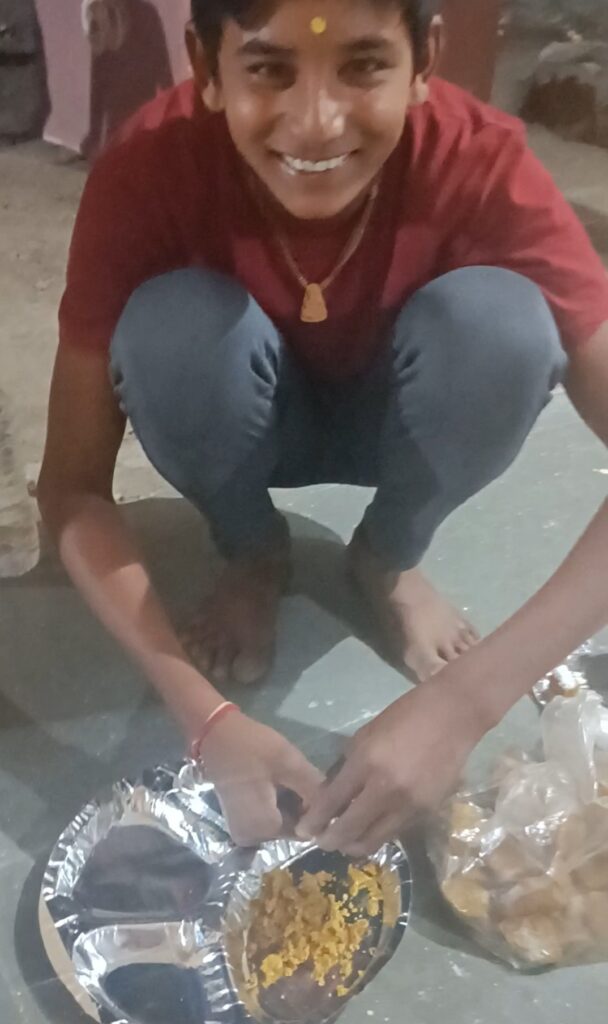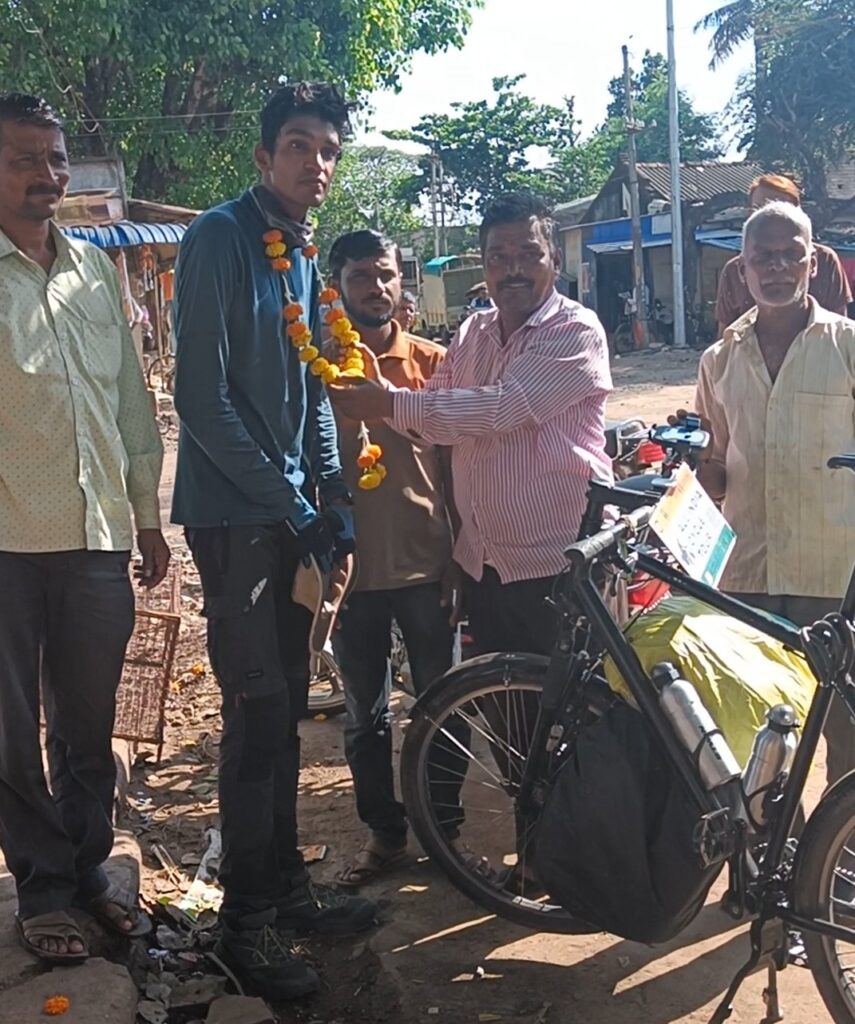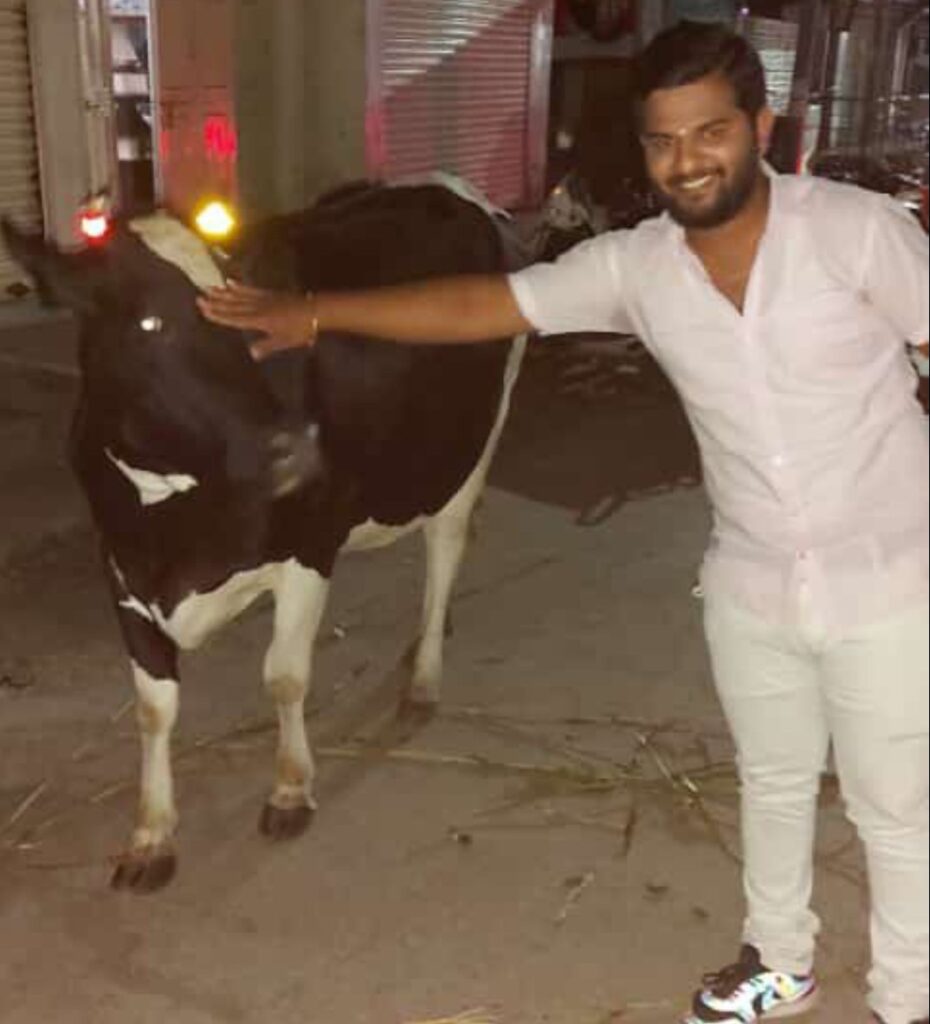What you can get to learn from travelling the entire stretch of Maharashtra on a cycle
Travelling in Maharashtra offers a rich tapestry of experiences that showcase the state’s vibrant culture, diverse landscapes, and historical heritage. Maharashtra is a treasure trove of experiences that teaches the importance of diversity, history, and the beauty that lies within its people and landscapes.
During my unforgettable journey through Maharashtra as part of an all-India cycle tour, I was fortunate to gather a myriad of personal experiences that shaped my perspective on this diverse state. It is important to note that the views I present in this article are subjective and based solely on my own encounters. I do not assert that they are universally accurate, as each individual’s experiences can vary significantly. While I strived to comprehend the state’s culture with minimal bias, it is inevitable that certain biases may persist. Nonetheless, I am excited to share my unique insights and reflections from traversing Maharashtra, acknowledging the inherent subjectivity and individuality of these encounters.
The thing you will get asked the most:
Maharashtrians hold an immense sense of pride in their culture, deeply rooted in the rich heritage of their revered kings, such as Chatrapati Shivaji Maharaj, Sambaji Maharaj, and Sahuji Maharaj, who made tremendous sacrifices for the state. Throughout Maharashtra, it is evident that statues of Shivaji or Shambaji Maharaj adorn every nook and cranny, surpassing even the number of religious idols. A recurring inquiry I encountered during my travels was whether I was acquainted with the lives and valorous struggles of these extraordinary leaders who fought for the nation. If you plan to explore Maharashtra, it is essential to familiarize yourself with the legacies of these great kings, as it is likely that anyone you encounter will inquire about your knowledge on the subject.

Women are strong
Maharashtra exemplifies a deep-rooted culture of immense respect for women. It is a place where women take charge, running shops and businesses with confidence and determination. Unlike certain places I have visited, where it is customary for a man to handle interactions with visitors, in Maharashtra, it is the women who confidently step forward to engage in conversation. They exhibit strength and assertiveness, making invaluable contributions not only to household matters but also to family enterprises. Mentally and physically, they exude a remarkable resilience, surpassing what I have witnessed in many other locations. Throughout my travels, I had the pleasure of meeting numerous extraordinary women who fearlessly expressed their thoughts and opinions, unhesitant to engage in discussions on any subject matter. Their independence and assertiveness were truly inspiring.
Maharastrians are proud of their language
Every individual I encountered in Maharashtra takes immense pride in their identity as a Marathi. It is a common occurrence for locals to eagerly share with visitors a word or two from their language, showcasing their enthusiasm for their native tongue.
Pride in food
Their pride transcends language and extends to the realm of culinary delights. Maharashtra’s residents take great pride in the distinctive flavors and quality of food originating from various regions within the state. I have witnessed passionate debates among locals about where one can find the finest Misal Pav, whether it be in Kolhapur, Pune, or Satara. Everywhere I ventured, the people I encountered graciously guided me to the finest eateries, ensuring that I sampled their traditional cuisine. They enthusiastically described the intricate process of preparing each dish and the specific occasions and contexts in which these delicacies are savored.

People are kind and helpful
As someone hailing from Karnataka, where I have witnessed acts of kindness and helpfulness, I was pleasantly surprised by the magnified sense of community in Maharashtra. Unlike in Karnataka, where individuals often keep to themselves, in Maharashtra, people display a remarkable level of unity, reaching out to one another to extend assistance in the best way possible. Everywhere I went, I was offered food without hesitation. Even in instances where I had a pleasant interaction with a few individuals in a Karnataka hotel, I still had to pay for my meals. In Maharashtra, however, locals ensure that outsiders are not burdened with expenses. It is not uncommon for the shop or hotel owner themselves to refuse payment if no one else has paid. It is crucial to note that Maharashtrians possess an inherent curiosity, and by humbly addressing their inquiries, one gains their respect. If you find yourself in need, it is their nature to contribute to fulfilling those needs.

This leads me to emphasize the significant presence of social workers in Maharashtra, as the spirit of compassion and community support runs deep within the state.
Many maharastrians have social work mindset
During my interactions with numerous individuals, including a bar owner, I noticed a remarkable commonality among them all: a strong commitment to giving back to society in some form. This altruistic mindset is particularly embraced by the youth, who actively participate in initiatives aimed at creating cleaner and greener cities. In cities like Satara, the young generation comes together to work tirelessly towards the shared goal of fostering a more sustainable and environmentally friendly urban environment.

Acceptive traits
In contrast to my experiences in Karnataka, where I often witnessed people readily engaging in unnecessary debates and arguments, Maharashtra presented a different dynamic. There, I noticed a distinct openness and receptiveness among individuals when engaging in discussions. If the person I conversed with sensed an opportunity to learn from my perspective, they displayed genuine respect and attentiveness. Instead of questioning or dismissing my opinions, they embraced them, contributing their own insights and fostering a collaborative exchange of ideas. This culture of acceptance and constructive dialogue was truly refreshing.
Mandirs don’t serve food like in southern states of India
In comparison to my hometown in Karnataka, where even small temples provide food during the afternoon and evening, Maharashtra presents a different scenario. While there are numerous temples in Maharashtra, only a few offer food to devotees. Additionally, many of these temples are locked at night, lacking the facilities for people to find shelter or rest. Unlike Karnataka, where dedicated mutts are available every 100 kilometers, Maharashtra’s temple infrastructure differs in terms of accessibility and services provided.
Religious riots
Instances of religious tensions and riots, particularly in the Vidharba regions of Maharashtra, have been on the rise in recent years. Hindu-Muslim conflicts have become more prominent, especially with the increasing installation of Shivaji Maharaj statues throughout the state. This is an acknowledged reality that permeates the consciousness of the people. Maharashtra is not immune to the presence of hardcore religious fanatics. With the majority of the population being Kshatriyas, there is a notable inclination towards advocating for Hindu interests. However, it is essential to recognize that Maharashtra also boasts a rich Islamic history and is home to a significant Muslim population, thereby leading to occasional friction between the two communities.
To read about what I learnt from my experiences in Karnataka, head to this article.
I am a 31 year young PhD graduate who has decided to travel the length and breadth of India on my cycle, to document the journey of meeting a vast array of people. In my journey, I intend to understand the characteristic features of the people of this nation and categorize them based on their demographics, age, profession, gender, traditions, and cultural differences.
Awesome summary. The essence of the journey is Well captured. Kudos. And all the best for madhya pradesh